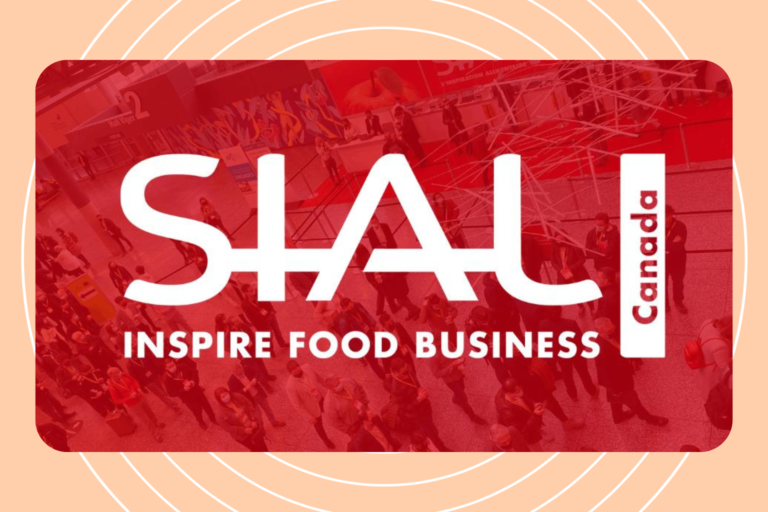/*! elementor – v3.13.2 – 11-05-2023 */
.elementor-heading-title{padding:0;margin:0;line-height:1}.elementor-widget-heading .elementor-heading-title[class*=elementor-size-]>a{color:inherit;font-size:inherit;line-height:inherit}.elementor-widget-heading .elementor-heading-title.elementor-size-small{font-size:15px}.elementor-widget-heading .elementor-heading-title.elementor-size-medium{font-size:19px}.elementor-widget-heading .elementor-heading-title.elementor-size-large{font-size:29px}.elementor-widget-heading .elementor-heading-title.elementor-size-xl{font-size:39px}.elementor-widget-heading .elementor-heading-title.elementor-size-xxl{font-size:59px}
Canada’s Green Revolution in Vertical
Farming
 As the world grapples with the challenges of climate change, growing urbanization, and escalating food demand, the future of agriculture is undergoing a dramatic transformation. One innovative solution that has emerged in this context is vertical farming. Particularly in Canada, characterized by its diverse climatic conditions and vast geographical expanse, vertical farming is carving a niche for itself as a key player in sustainable agriculture.
As the world grapples with the challenges of climate change, growing urbanization, and escalating food demand, the future of agriculture is undergoing a dramatic transformation. One innovative solution that has emerged in this context is vertical farming. Particularly in Canada, characterized by its diverse climatic conditions and vast geographical expanse, vertical farming is carving a niche for itself as a key player in sustainable agriculture.
Vertical farming refers to the practice of growing crops in vertically stacked layers or inclined surfaces, typically in a controlled environment. This method stands as a game-changer in the agricultural sector, offering the promise of high crop yields within small urban spaces. Traditional farming, while still essential, is often subject to unpredictable weather patterns, pest invasions, and other environmental factors. Vertical farming, on the other hand, mitigates these risks by taking place indoors, thereby eliminating the unpredictability of weather and significantly reducing the risk of crop diseases and pests.
Canada, with its long, harsh winters and brief growing seasons, provides an ideal backdrop for the implementation and expansion of vertical farming. The advent of this technology allows for the year-round production of fresh produce, a significant breakthrough for many Canadian regions. It challenges the conventional notion that certain crops are only grown seasonally. From leafy greens and herbs to more exotic varieties like mushrooms and strawberries, the vertical farming industry in Canada is broadening the country’s agricultural scope.
In recent years, numerous vertical farming initiatives have taken root across Canada, especially within bustling urban centers such as Vancouver, Calgary, Toronto, and Montreal. These initiatives are not only securing a consistent supply of fresh, locally grown produce but also contributing to urban regeneration, job creation, and the reduction of the carbon footprint associated with transporting food over long distances. The ability to grow crops in a controlled environment within city limits reduces the dependency on rural farming and long-haul transport, thereby making fresh produce more accessible and sustainable.

A cornerstone of vertical farming is hydroponics, a method where plants are grown in a nutrient-rich water solution instead of soil. This technique uses up to 95% less water compared to traditional farming, underlining vertical farming as an incredibly water-efficient method. Given the increasing concerns about water scarcity and conservation worldwide, this attribute of vertical farming gains even more relevance.
Aeroponics and aquaponics are other techniques often employed in vertical farming. Aeroponics involves misting the plant roots with nutrient-rich water, while aquaponics combines aquaculture (raising aquatic animals) with hydroponics, creating a symbiotic environment where the waste from the aquatic animals serves as a nutrient source for the plants.
While vertical farming offers an array of promising solutions, it also faces challenges. The high initial cost of setting up a vertical farm and the ongoing energy demands for maintaining controlled indoor environments rank among the most significant obstacles. However, with continual technological advancements and increased scalability, these costs are expected to decrease over time. Furthermore, increased research and investment in renewable energy sources can also help offset the energy demands of vertical farming operations.
Canada’s role in the global vertical farming industry is growing progressively. The country’s commitment to sustainable practices, its tech-savvy workforce, and its need for year-round fresh produce uniquely position Canada to embrace and advance vertical farming. Educational institutions across Canada are introducing courses in vertical farming and related technologies, indicating a promising future for the industry.
Vertical farming presents an innovative and sustainable solution for food production in Canada. Embracing this cutting-edge technology offers the potential to revolutionize the country’s agricultural practices, enhance food security, and reduce environmental impact. The future of vertical farming in Canada is not just about growing upwards; it’s about moving forward. By integrating this technology into the agricultural sector, Canada can take a significant stride towards sustainable agriculture and resilience in food production.
Furthermore, vertical farming contributes to the circular economy model, turning urban waste into a resource. Organic waste can be composted and used in these farms, thereby reducing the amount of waste that ends up in landfills and contributing to a more sustainable ecosystem.
Beyond its environmental benefits, vertical farming also has significant social implications. It brings agriculture into the urban sphere, offering city dwellers a unique opportunity to connect with the process of food production. This connection can foster a greater appreciation for agriculture and promote healthier, more sustainable eating habits. Moreover, vertical farming can help address food deserts in urban areas, ensuring that all residents have access to fresh, locally grown produce.
 The positive impact of vertical farming on job creation is also noteworthy. As vertical farms spring up across Canada’s urban landscape, they create a range of new jobs and skill requirements, from engineers and agronomists to data analysts and logistics coordinators. This job creation can stimulate local economies and provide rewarding career opportunities for Canada’s workforce.
The positive impact of vertical farming on job creation is also noteworthy. As vertical farms spring up across Canada’s urban landscape, they create a range of new jobs and skill requirements, from engineers and agronomists to data analysts and logistics coordinators. This job creation can stimulate local economies and provide rewarding career opportunities for Canada’s workforce.
It is clear that vertical farming is much more than just an innovative method of food production. It represents a comprehensive solution to a range of pressing issues, from environmental sustainability and food security to urban regeneration and job creation. As such, the rise of vertical farming can play a crucial role in shaping a more sustainable and resilient future for Canada.
In the face of the challenges ahead, Canada’s embrace of vertical farming demonstrates a commitment to innovation, sustainability, and resilience. With continued investment, research, and public support, vertical farming can grow from a promising concept into a cornerstone of Canada’s agricultural sector.
Ultimately, the future of vertical farming in Canada is bright, filled with potential and ripe for growth. As we move forward, vertical farming will continue to scale new heights, marking a significant stride towards a sustainable and secure food future in Canada.
Here’s a list of companies in this industry.
TruLeaf is an agricultural innovation company located in Nova Scotia, Canada. Since its inception in 2011, it has been pioneering the integration of technology, agriculture, and horticulture to build sustainable, indoor farming systems. Using these systems, TruLeaf can grow fresh, nutrient-rich produce all year round, irrespective of the external climate conditions. The company’s mission is to improve public health with plant-based solutions, making fresh vegetables available even in regions with harsh weather conditions.
UP Vertical Farms (Pitt Meadows, B.C.)
Locally grown, year-round, in ideal conditions in Pitt Meadows, BC, its fresh and nutritious greens not only last longer, but taste infinitely better. Its commercial scale indoor farming operations contribute to food security in the produce sector and our community. It has fully-automated, high-density vertical growing system uses a touchless technology from seeding through to harvest in a humidity, temperature, water, light and nutrient-controlled environment that ups the quality of each and every plant.
Elevate Farm (Toronto, Ontario)
Elevate Farm grows locally, sustainable, zero pesticides greens that are blockchain tracked from seed to sale in proprietary, closed-loop, state-of-the-art vertical farming facilities. Its facilities creates an ideal growing conditions for plants, providing them with precisely what they need at the right time with zero contamination. The result is a predictable, quality product that consistently looks and tastes fantastic, 365 days a year.
Sky Greens is Canada’s first low carbon, hydraulic-driven, commercial vertical farming system. It offers companies a significant competitive advantage in the form of cutting-edge, high-quality, and efficient commercial vertical farming technology. As a world leader in innovative high-density vertical farming solutions, Sky Greens Canada’s mission is to transform the indoor/greenhouse growing experience through intelligent, space-saving, rotating growing solutions.



